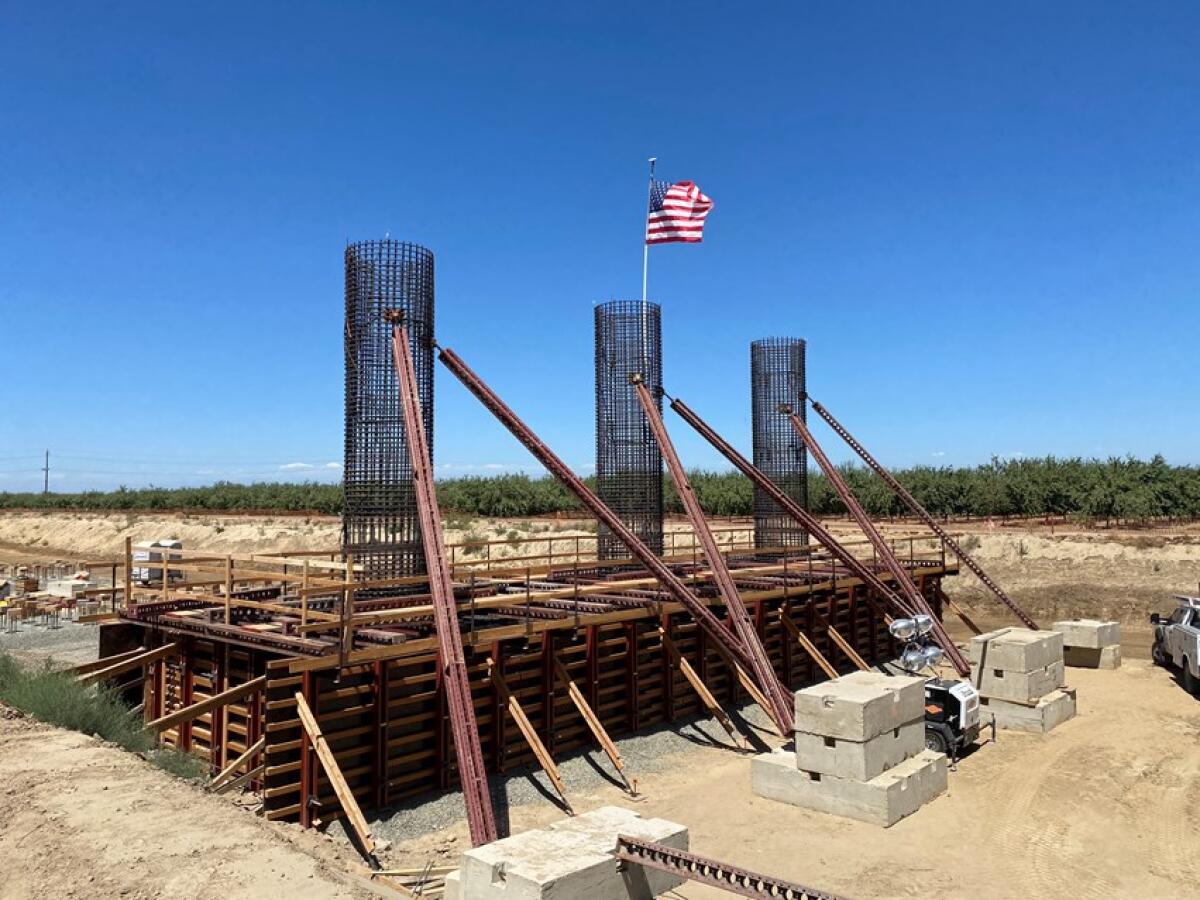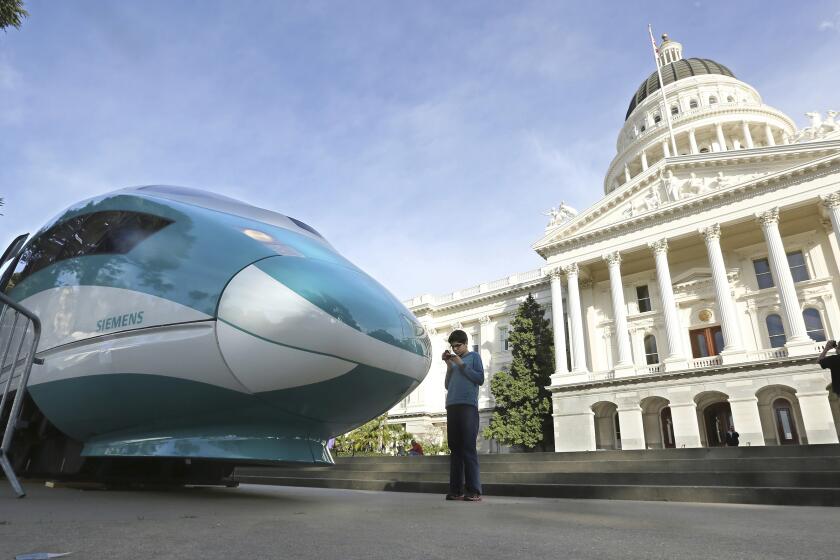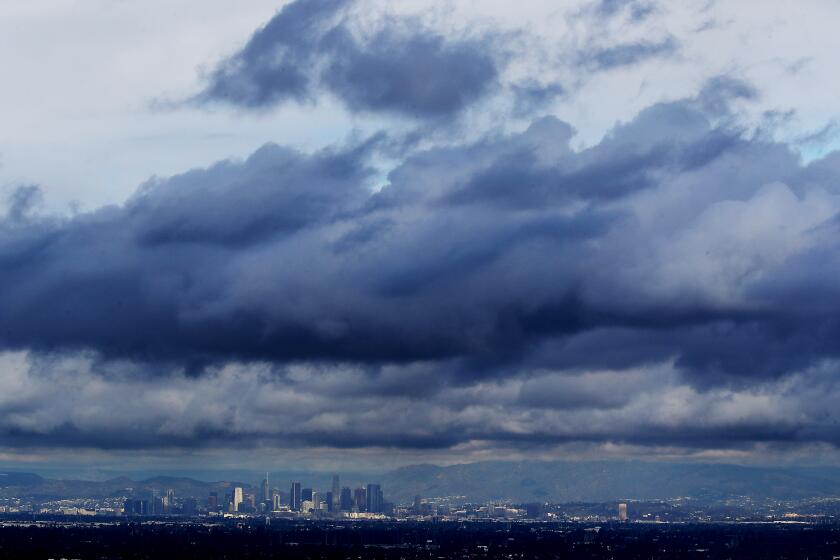California approves bullet train plan between San Francisco and San Jose

- Share via
The California High-Speed Rail Authority board of directors approved an environmental report and preferred route for the extension of the state’s bullet train through the Bay Area, inching the project one step closer to reality.
The unanimous vote by the board earlier this month to certify the final environmental report for the section between San Francisco and San Jose clears the way for the 43-mile expansion between the two cities, according to a press release from the California High-Speed Rail Authority.
“We are closer than ever to realizing a first in the nation, statewide high-speed rail system,” Tom Richards, authority chairman, said in a statement.
The extension’s approval sets the stretch between San Jose and San Francisco up to be “shovel ready” for when funding becomes available, said Anthony Lopez, information officer for the California High-Speed Rail Authority.
It also means that over 420 miles of the project’s 500-mile program are now environmentally certified, Lopez said.
In a new draft business plan, the California High-Speed Rail Authority acknowledged that costs have risen roughly $5 billion.
The section will link the San Francisco Bay Area and the peninsula to San Jose, the Central Valley, and Los Angeles County.
According to the press release, the board selected an alternative route for the San Francisco to San Jose leg that will share Caltrain’s commuter tracks. The route will travel from the previously approved San Jose high-speed rail station and will include new high-speed rail stations in San Francisco and Millbrae, the construction of a light maintenance facility on the east side of the Caltrain corridor in Brisbane, and other safety and speed projects.
The high-speed rail program, which has begun construction in some parts of the state, has been beset by delays, criticism from communities and politicians and funding challenges. According to the San Francisco Chronicle, an estimated $25 billion is still needed for the newly-approved leg and for a Silicon Valley segment that was approved last spring.
A 2022 business plan released in February estimates that the full, 500-mile high-speed system between Los Angeles and San Francisco will cost as much as $105 billion, up from $100 billion two years ago. In 2008, when voters approved a bond to help build the railroad, the authority estimated that the system would cost $33 billion.
More to Read
Sign up for Essential California
The most important California stories and recommendations in your inbox every morning.
You may occasionally receive promotional content from the Los Angeles Times.












